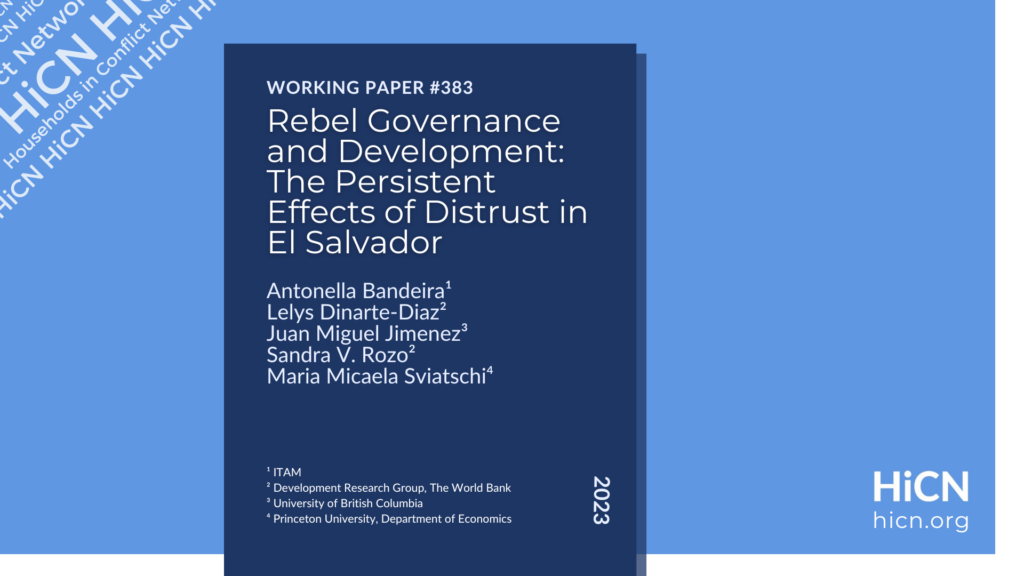
How does rebel governance affect long-term development? Rebel forces have controlled territory and imposed their own institutions in many countries over the past decades affecting millions of people. We investigate the economic, social, and political consequences of temporary territorial control by guerrillas during the Salvadoran Civil War. During that time, guerrillas displaced state authorities and created their own informal institutions that encouraged autonomy and self-sufficiency from the state and external actors. Using a spatial regression discontinuity design, we show that areas once under guerrilla control have experienced worse economic outcomes over the last 20 years than adjacent areas controlled by the formal state. Our results suggest that reliance on non-state governance reinforced norms of distrust of external actors, producing overdependence on subsistence farming and disengagement from postwar governments. Results do not revert despite increased postwar public investment in formerly guerrilla areas. We argue that when non-state actors develop alternative governance institutions, these can prompt adverse development effects through lasting norms of distrust of out-groups.